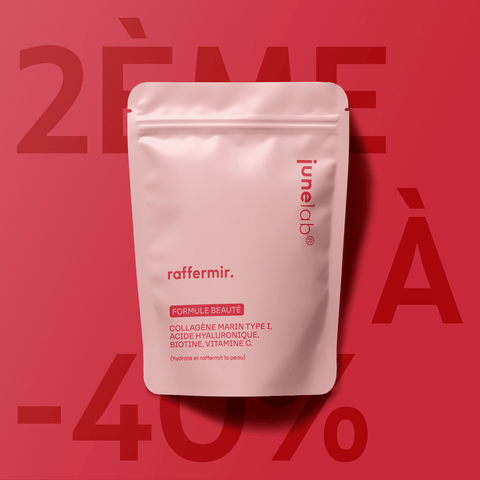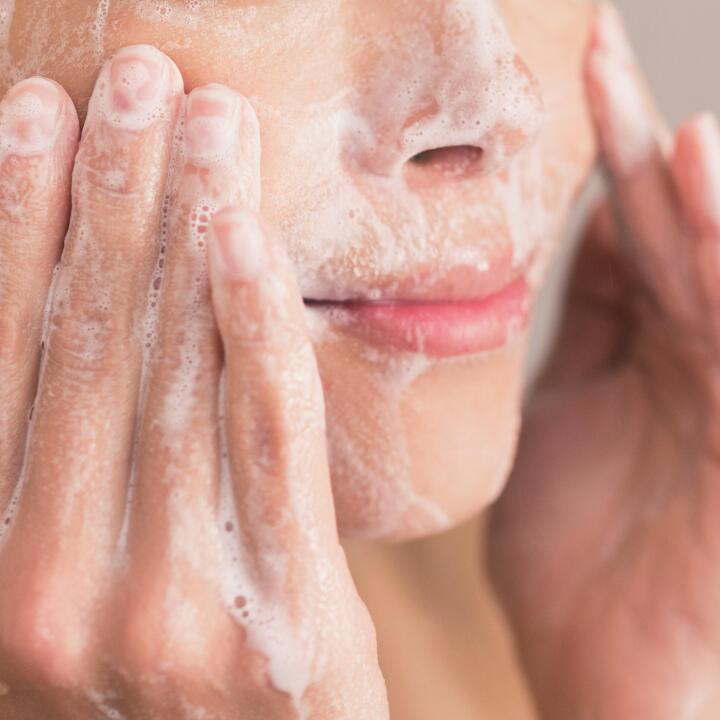How does collagen help prevent aging?
Skin aging is a natural, inevitable process that is often linked to genetics. However, there are ways to slow down its effects, particularly with collagen , an essential protein that plays a key role in the structure and firmness of the skin. As we age, our bodies produce less and less collagen, leading to the appearance of wrinkles, a loss of elasticity, and thinner, more fragile skin. This article explores in detail how collagen helps prevent skin aging and how you can incorporate it into your skincare routine to maintain younger, smoother skin.
1. What is collagen?
Collagen is a protein naturally present in the body. It makes up approximately 30% of the body's total protein and up to 75% of the structure of skin. Collagen is also present in other tissues such as bones, cartilage, muscles, and tendons. Its main function is to provide structure and maintain tissue elasticity .
The skin, in particular, contains a large amount of collagen, which acts as a structural support, ensuring its firmness, strength, and flexibility. Simply put, collagen is what prevents skin from loosening and sagging over time. It also gives skin its smooth, youthful appearance.
The role of collagen in the skin
In the skin, collagen is produced by cells called fibroblasts located in the dermis (the middle layer of the skin). This collagen forms a mesh that supports the skin and gives it strength and firmness. It also helps maintain skin moisture by promoting the production of hyaluronic acid, another molecule crucial for skin hydration.
2. Why does collagen decrease with age?
Unfortunately, from around the age of 25, natural collagen production begins to gradually decline . Each year, the body produces about 1% less collagen , resulting in a gradual loss of skin firmness and elasticity. This decrease in collagen production is one of the main reasons why skin ages.
Aggravating factors
In addition to the natural aging process, other factors can accelerate collagen loss:
- UV exposure : The sun is one of the main causes of premature skin aging. UV rays directly damage collagen fibers, leading to a loss of firmness and the appearance of wrinkles.
- Pollution : Polluting particles in the air damage skin cells and accelerate the breakdown of collagen.
- Oxidative stress : Free radicals, produced by oxidative stress (caused by factors such as smoking, poor diet and pollution), contribute to the destruction of collagen.
- Tobacco : Smoking reduces blood circulation and deprives the skin of the oxygen and nutrients needed to produce collagen.
- Hormonal fluctuations : Menopause, for example, causes a significant decrease in collagen production due to declining estrogen levels.

3. How does collagen help prevent aging?
Collagen plays several crucial roles in preventing skin aging . Here are the main ones:
a) Maintaining skin firmness and elasticity
Collagen is responsible for the structure of the skin. It gives skin its firm, plump appearance. When collagen production decreases, the skin begins to lose its firmness, and wrinkles appear. Increasing the amount of collagen in the skin can improve its firmness and suppleness, reducing the appearance of fine lines and wrinkles.
Marine collagen supplements, such as June Laboratoire 's Marine Collagen - Anti-Aging Formula , are particularly effective at improving skin elasticity. Marine collagen is a rich source of essential amino acids that help strengthen skin fibers and stimulate natural collagen production.
b) Hydration and water retention
Another essential property of collagen is its ability to improve skin hydration . When collagen is abundant, it promotes the production of hyaluronic acid, a molecule capable of retaining up to 1,000 times its weight in water. This helps keep the skin well hydrated, which is crucial for preventing the formation of fine lines and wrinkles.
When skin is well hydrated, it looks smoother and plumper, and signs of aging are less visible. Collagen helps reduce dehydration and prevent the appearance of wrinkles.
c) Reduction of wrinkles and fine lines
Collagen's primary role in wrinkle prevention is its ability to repair damaged skin tissue and improve its elasticity. By filling in fine lines and wrinkles, collagen helps restore smoother, more even-toned skin.
Several studies have shown that regularly taking collagen supplements can help reduce the appearance of wrinkles. By stimulating the production of new collagen fibers, supplements promote better cell regeneration and reduce the visible signs of aging.
d) Improved healing
Collagen also plays a key role in the wound healing process. When skin is injured, the body uses collagen to repair damaged tissue. With age, this regenerative ability decreases due to the decline in collagen production. By increasing collagen intake, you can improve the skin's ability to heal and repair itself faster, which helps maintain healthy, even skin tone.
e) Protection against free radicals
Collagen also acts as a protective shield against free radicals , unstable molecules that damage skin cells and accelerate aging. By strengthening the skin's structure, collagen helps protect the skin from external aggressions such as pollution and UV rays.
In combination with antioxidants, such as resveratrol or vitamin C , collagen becomes a major asset in fighting oxidative stress and slowing down the visible signs of aging.
4. How to stimulate collagen production?
Although collagen production naturally declines with age, there are several ways to boost its production and maintain younger, firmer skin.
a) Collagen-based food supplements
Collagen supplements have become a popular solution for preventing skin aging. They work by increasing the availability of amino acids needed to produce new collagen fibers. Marine collagen is particularly valued for its high bioavailability, meaning it is easily absorbed by the body.
June Laboratoire 's Marine Collagen - Anti-Aging Formula contains type 1 marine collagen, which is the most abundant form in the skin. This type of collagen is known for its beneficial effects on skin elasticity and firmness.

b) Food
A diet rich in nutrients that promote collagen production is also essential for maintaining youthful skin. Here are some key nutrients:
- Vitamin C : This vitamin is crucial for collagen synthesis. It is found in citrus fruits, berries, peppers, and green leafy vegetables.
- Amino acids : Collagen is made up of amino acids like glycine, proline, and hydroxyproline. These amino acids are found in lean meats, eggs, and fish.
- Zinc and Copper : These minerals are involved in collagen formation and can be found in seafood, seeds, and legumes.
c) Topical care
Anti-aging skincare products containing collagen peptides, retinoids, or antioxidants like vitamin C can also boost production.














